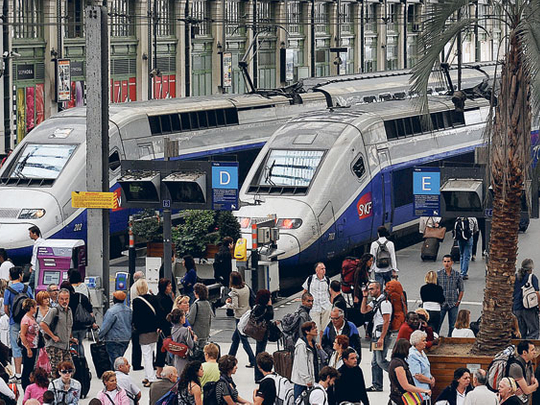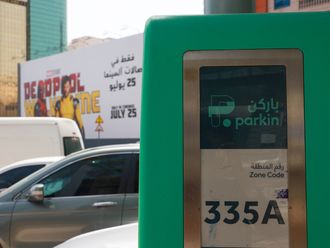
Prague: In the rural eastern corner of the Czech Republic, residents of Frydek Mistek thought they were finally close to getting the new road they craved for 14 years.
Plans were in place to spend an estimated $234 million (Dh859 million) on a highway bypass for the 45,000 trucks and cars that travel each day through the 700-year-old town. The project, approved locally in 1996 and scheduled to start in less than two years, is now one of dozens in eastern Europe that may be delayed because of budgetary constraints.
"If there isn't any transport solution, the town will literally die," Deputy Mayor Petr Cvik said in an interview. He spoke as vehicles from a Hyundai Motor Corp. plant crowded the streets of the city centre.
Governments across Europe are pushing an austerity drive after investor concern about budget deficits sparked a sovereign debt crisis earlier this year. In Ireland, pay for state workers has been reduced 13 per cent. Spain is preparing its toughest budget in 30 years, while wage cuts in Greece led to an annualised 25 per cent drop in consumer spending during the second quarter. In former communist Europe, infrastructure projects are being shelved.
Cost-cutting talks
Czech Transportation Minister Vit Barta has negotiated with builders, including Eurovia and Skanska units, to scale back construction costs by 2.5 per cent for contracted road developments and 5 per cent for railways projects. In the current market, it would take 100 years to build all the proposed new roads and railways, he said.
"I had to act as a tough businessman and there were concessions on both sides," Barta said in Prague Tuesday. "The next step is to create a new transport conception and define our priorities as soon as the government decides on an investment framework."
Stockholm-based Skanska, Sweden's biggest builder, is consulting with lawyers about contracts that have been signed, and continuing talks with the client, said Lucie Novakova, the spokeswoman for the company's Czech unit, in an emailed statement. Eurovia CS may reduce its workforce.
"It's a political decision and we have to adjust to that," said Martin Borovka, chief executive officer of the Czech unit of Eurovia, a subsidiary of France's Vinci. "We'll lay off people, reduce all costs, and stop doing acquisitions."
The Bulgarian government froze work on a highway from Sofia to Varna on the Black Sea until 2012. The decision may affect coastal tourism as the 350-kilometre trip from the capital now takes a full day.
Romania stopped construction this year after building just 40 kilometres of roads in 2009. Hungary may scale back projects from raised highways to less expensive multi-lane roads, according to the Hungarian Economy Minister.
Transport update
The Czech Republic is among 10 former communist states that joined the European Union during the past six years and received grants to update their Soviet-era transport links. The Czech Republic ranked 79th in a World Economic Forum survey that focused on road quality. Poland placed 127th and Hungary was 64th. Singapore was first, followed by France. Germany and Austria were rated fourth and sixth respectively.
"I consider it a priority that the country won't become more indebted and have room for doing pension and health-care reforms," Barta said on August 14. "This also gives us time now to implement costs reduction and boost effectiveness."
Former eastern bloc countries earmarked 1.9 per cent of their combined gross domestic product for transport in 2008, up from 1 per cent in 2002, according to the International Transport Forum, a research group affiliated with the Organisation for Economic Cooperation and Development in Paris.
"We've had a construction boom after the fall of communism and builders profited from that," said Ales Michl, an analyst at Raiffeisenbank in Prague.
Czech Prime Minister Petr Necas froze 10.2 billion koruna (Dh1.9 billion) of spending this year to shave the budget deficit to 3 per cent of GDP by 2013. In Hungary, the EU's most indebted eastern member, austerity measures include $543 million of cuts.
Shortfalls
Bulgaria and Romania, the EU's poorest nations, also are struggling to meet demands to trim their shortfalls.
Slovakia needs to cut its budget gap by more than half from 7 per cent of GDP to conform with euro-region rules.
"Building remains our priority, but the solution has to be advantageous also for society," Slovak Transportation Minister Jan Figel said on September 7.
"I know there are jobs at stake, but we can't continue building like this."












